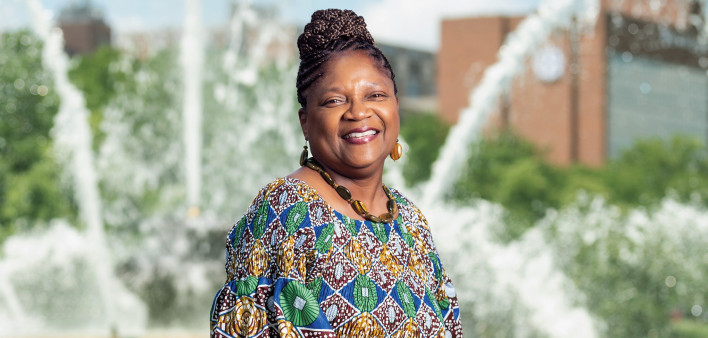Like most people living with HIV, LaTrischa Miles remembers the day she was diagnosed with HIV as if it were a second birthday: December 15, 1995.
“I had no knowledge of HIV,” says Miles, who resides in Kansas. “When people say ‘positive,’ you think it is something good. But in this case, it was something bad.”
At the time, Miles had three children and was going through a separation. She spent three years processing her own diagnosis and learning more about HIV before becoming emboldened enough to advocate for others.
“I didn’t want women to go through the same journey that I went through,” she explains. “I wanted to empower women to engage in their own health care and to know about their status.”
In 2008, Miles was selected as one of 28 women to help cofound Positive Women’s Network–USA (PWN-USA), a national group of women living with HIV. That year, the founders met for the first time to develop PWN-USA’s vision, mission and goals.
A lot has changed since PWN-USA’s formation, according to Miles. Back then, there were no regional chapters and only a small staff. Today, it’s a full-fledged nonprofit with six regional chapters, more than 3,000 members and a board of directors, of which Miles has been the cochair since March.
“My goal is making sure that the board is prepared for the future in order to lead into 2020 and beyond,” Miles says.
Miles is the founder of GRACE, an 11-year-old monthly support group designed to bring help, hope and healing to women of faith with HIV in Missouri.
She also serves as manager of treatment adherence at Missouri’s KC CARE Health Center, where in 2003 she volunteered as a peer educator before rising through the ranks to her current position.
In 2011, she held the first public meeting on ending HIV criminalization in Missouri. Representatives included several AIDS service organizations, the city’s health department and the mayor’s office.
Since 2018, Miles has testified before Missouri’s House Committee on Health and Mental Health to help a pair of House bills gain some support: HB 166 and HB 167 would update current HIV laws to reflect modern science.
“Change starts with individuals who call out injustice when basic rights are being violated,” Miles says about her motivation to speak out. “I kept thinking, Basic rights are being violated here. And that continues to move me to work on this issue.”
Despite pushback, Miles and other advocates hope to have the bills heard by another committee next year. “Even though we’ve had our starts and stops, and we haven’t gotten what we consider victory, we know that it’s coming,” she says.
In June, Miles was honored with the Elaine Aber Humanitarian Award by Empower Missouri for her public policy work regarding people living with HIV.
“I don’t ever want to forget where I came from and how I felt after being diagnosed,” Miles says. “The way to do that is to make sure that you’re always touching the people.”







1 Comment
1 Comment